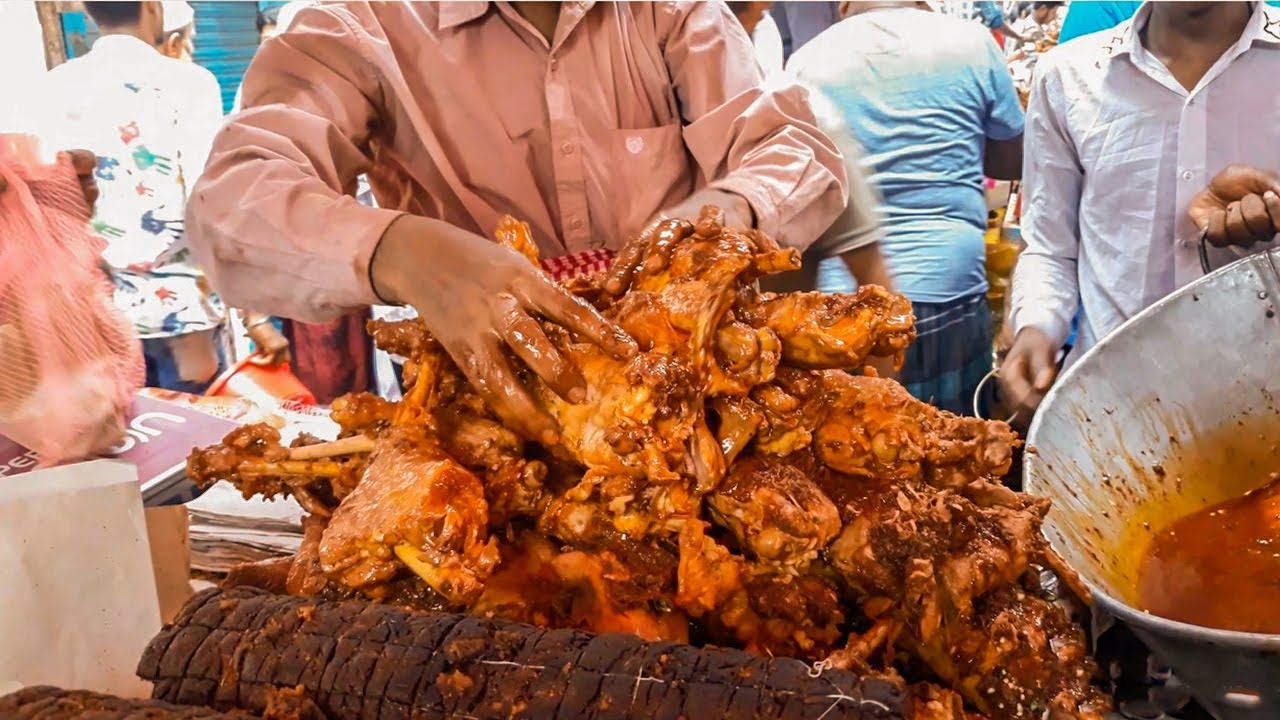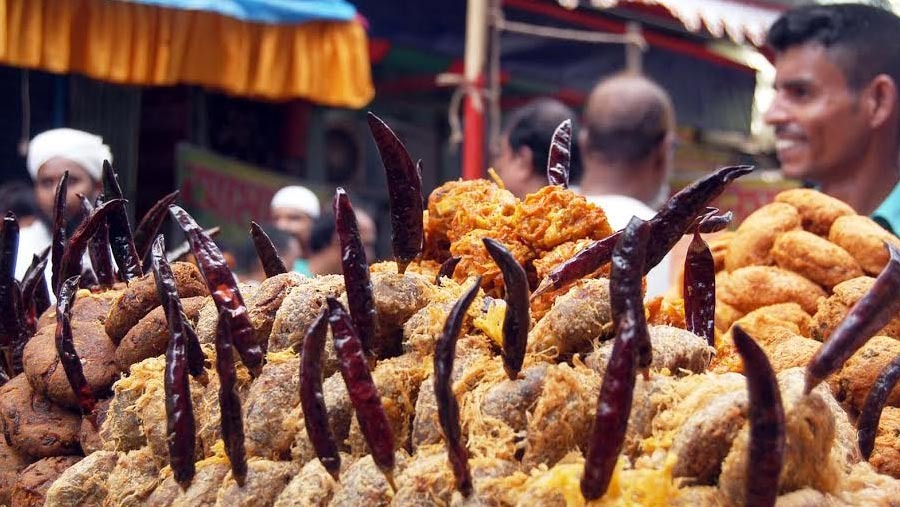By Md. Kamruzzaman
Mohammad Liaqat Ali has been living in the old part of Bangladesh’s capital Dhaka for the last two decades. The area is also addressed as “Old Dhaka” after the massive extension of the megacity with new settlements to meet the demands of a growing population and new arrivals, who have migrated to the capital town from other parts of the country for livelihoods and other causes and the trend is still continuing. The extended areas including some sophisticated upscale zones are now the home to the greater part of above 20 million city dwellers.
But the significance of the Old Dhaka and its cultural dominance over the other parts of the city as well as the country is always undeniable. The month-long Muslims’ holy Ramadan celebration especially the festivity around the Sehri and Iftar — the last meal before starting the daylong fasting and the first meal that breaks the starvation — of Old Dhaka has turned into an inevitable culture of Bengali Muslims in the region.
Ali who has originated from the country’s southern port city of Chittagong is an eyewitness of (Ramzan) Ramadan culture of Old Dhaka and how it has extended nationwide. He lives in Old Dhaka’s Chakbazar area, also reputed as the country’s biggest Iftar market. Dozens of delicious foods including some centuries-old items are the main attraction of this market. For many years, tens of thousands of people from different corners of the city as well as other parts of the country gather here to buy uncommon Iftar items. They tangle the area throughout the whole Ramadan month, showing a different culture of sharing Ramadan festivity.
“In every Ramadan month, we purchase various food items from this market and invite our relatives and neighbors to share Iftar together. Since my migration to this area two decades ago I have been observing the same tradition,” said Ali. But for the last two years, the Iftar market of Chakbazar has been postponed due to the global pandemic.
Shamsul Alam Selim, a resident of Old Dhaka’s Nazimuddin Road, who has been living here for nearly 50 years said that the patterns of Ramadan Sehri and Iftar have been drastically changed for the last two years due to the lethal virus. “It was out of our imagination that we will enjoy Sehri and Iftar without Old Dhaka’s traditional foods and without inviting relatives and neighbors,” Selim said.
Among those traditional items, some are – Boro Baper Polay Khay (Big father’s son eats), shahi jilapi, shahi paratha, and historic Shahi Mughal biryani. These items have become an inseparable part of Ramadan month for the inhabitants of capital Dhaka especially of Old Dhaka for decades. One of the most interesting items “Boro Baper Polay Khay” is a mixture of chickpeas, minced meat, potatoes, brains, chira, egg, chicken, spices and ghee.
Break-in a long tradition
A very familiar culture of Sehri from remote rural areas to upscale urban in Bangladesh is that some people come out of home with some traditional tin-sheet speak-louder and roam throughout their own localities at late-night and call people to wake up for Sehri. Children and teenagers very often join them with great pleasure. This practice has become a Sehri time culture of Bangladesh for many years. But due to the rapid spread of the virus, it has been stopped for the last two years.
There are also changes in items of Sehri and Iftar as people are not in a pleasing mood due to the pandemic. So the common tendency of arranging many food items for Sehri and Iftar has also been drastically downed. Besides, another common culture in Bangladesh is that people arrange rich foods mostly at the time when there are guests at their homes. As there is no guest in most of the houses because of the pandemic, people are reluctant to arrange more items for Sehri and Iftar.
Like Old Dhaka roadside floating shops with Iftar items were very common throughout the whole country for many years during Ramadan. Even small vendors at the streets used to cook various local yummy foods like piazu, haleem, beguni, alur chap, jilapi and the like. Millions of people at the eve of Iftar gather at those vendors and buy Iftar items. But no such floating Iftar market has been permitted after the virus hit the country in March last year and already killed nearly 11,000 people.
Siddikul Islam, a small trader, in the country’s remote southern district of Barguna said that many people have lost a great seasonal income for COVID-19 restrictions during Ramadan. “I had generated a great part of my annual income only in the month of Ramadan by selling Iftar items. But it was totally stopped for the last two years.” Another small vendor Mohammad Alam said that many traders including the seasonal ones have changed their professions. They are now inclined to agriculture or planning to migrate to other countries.
Mosque-based traditional Iftar postponed
The south Asian delta country of 170 million people, with nearly 92 percent majority Muslims, has approximately 300,000 mosques across the country. During the month of Ramadan there is a great festivity rounding those mosques as the concerned authorities arrange Iftar for devotees, especially for travelers or pedestrians. But in common, a huge number of needy people and street beggars also gather at the mosques to have free Iftar. But everything goes normally despite such gatherings as people take the service with a feeling of religious devotion. This mosque-based Iftar culture has also been declined for the last two years citing virus concerns.
It was very common that all mosques were filled with people minutes before the Iftar time while the Khadems (servants of the mosques) were seen passing busy hours in distributing Iftar items through the traditional mud-made utensils, or plastic plates. The normal items in the mosque Iftar were sola, muri, chira, gur, banana, traditional homemade juice of lemon and Isub Guler bhushi, and sometimes haleem.
The common scene in most of the mosques now is that one or two Khadems are taking Iftar sitting at a corner with a gloomy mood.
People dream that the situation will be changed with the mercy of Allah and the holy Ramadan will assume its previous festivity in near future. They want to practice Ramadan fasting together in harmony as they have been doing for generations after generations. They do not expect that such an uncommon Ramadan will sustain long where people fail to share food and happiness with each other.
Note
The writer is an Asia-based prize-winning freelance journalist who mainly writes on diplomacy, refugee, human rights, and climate change. His articles have been frequently published by DND News Agency, Turkish Anadolu Agency, TRT World, South Asian Monitor, and other media outlets as contents of agencies. He can be reached at mkzbablu@gmail.com / https://twitter.com/mkbablu






